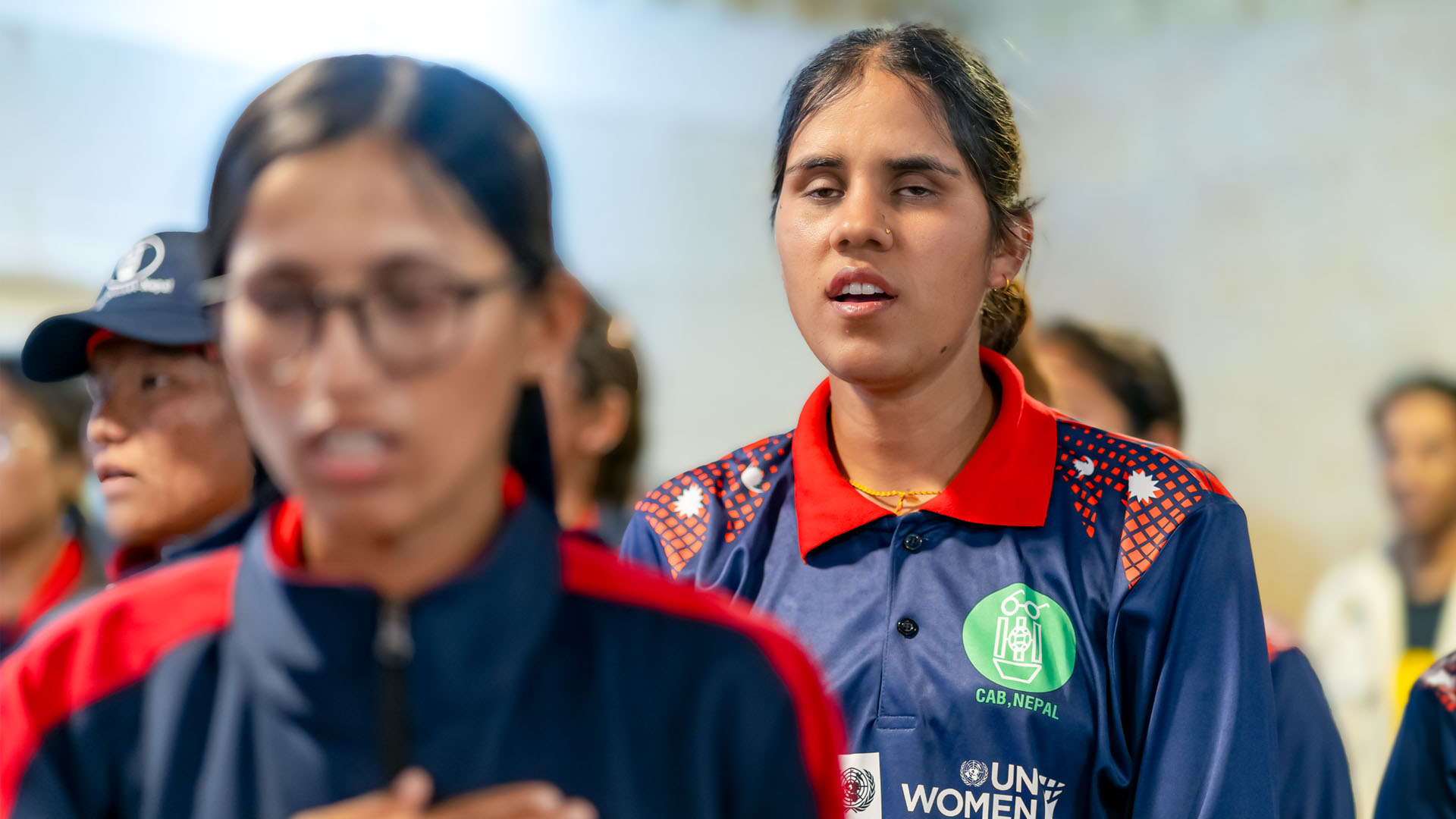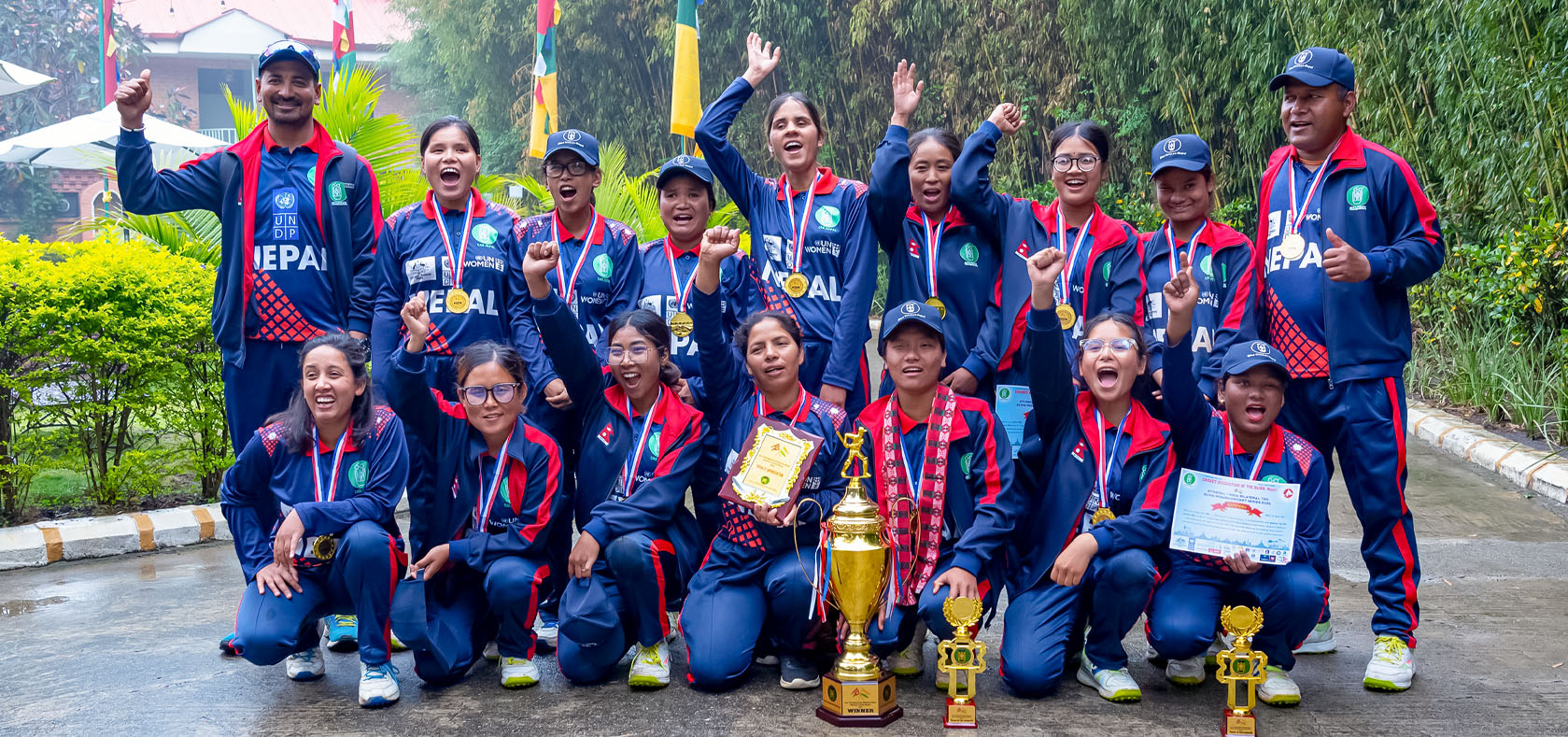In the Words of Muna Aryal: “My achievements have transformed how many of my fellow villagers perceive me”
Date:

Muna Aryal, 30, is a member of the national cricket team of Nepal for players who are blind. She is completing her thesis for a master’s degree in education in Kathmandu. Earlier this year, Aryal played in a series of matches partly funded by UN Women.

People often speculated that my two elder sisters and I must have committed grave sins in our past lives, for we were born blind.
The mere mention and repetition of such hurtful words would shatter my parents' hearts into a thousand pieces. Our relatives did not want us to partake in family gatherings and functions.
While others, as adults, fondly reminisce about their blissful childhoods, I have no happy memories to hold on to. My childhood years were tainted with hatred and shame. With seven children to raise, my parents struggled to make ends meet on their modest income from farming. I longed to assist my parents but couldn’t do anything.
When I reached the age of 11, my life took a significant turn after I enrolled in a school for blind people in Pokhara, a city in central Nepal, a two-hour drive away from my village in Syangja.
It was there that I first encountered Bhagwati Bhattarai, our esteemed national team captain. She was playing in a team with a jingle ball that made a sound. Bhagwati told me that she was part of Nepal's team, which made history as the world's first-ever cricket team for blind women.
As someone who had been incessantly told that their abilities were limited, I took this opportunity as my chance to defy those perceptions and prove everyone wrong.

In 2009, I was selected to be a part of the national team as a B1 player, which denotes totally blind players. In 2015, we competed in our first international match against India. In 2019, just before the pandemic, we embarked on our first international tour, and we registered a clean sweep against the Pakistani team.
More recently, we had a bilateral T20 series against India. I am primarily a bowler, but the third match’s batting experience was unforgettable for me. We were chasing a challenging target of 214 runs, and 13 runs were required from the last six balls. I heard the ball coming my way, tightened my grip of the bat and used every ounce of strength I had to propel the ball across the pitch. I heard the cheers from my friends as I scored four runs. My friend Binita Pun then led our team to victory with her amazing batting. We continued the winning momentum to win the whole series.
When I first held that bat and ball, I had no idea it would lead to fame and recognition. My initial goal was to bring joy to my parents and alleviate their sorrow of raising three visually impaired daughters. Today, they are very proud of me, and my achievements have transformed how many of my fellow villagers perceive me.
Having faced taunts from certain relatives, who continue to be dissatisfied with my achievements and consider my fame as a source for shame, I have gained a valuable insight from this experience. I have come to understand that we cannot appease everyone's expectations or satisfy their narrow judgments. Instead, we must prioritize our own well-being.”